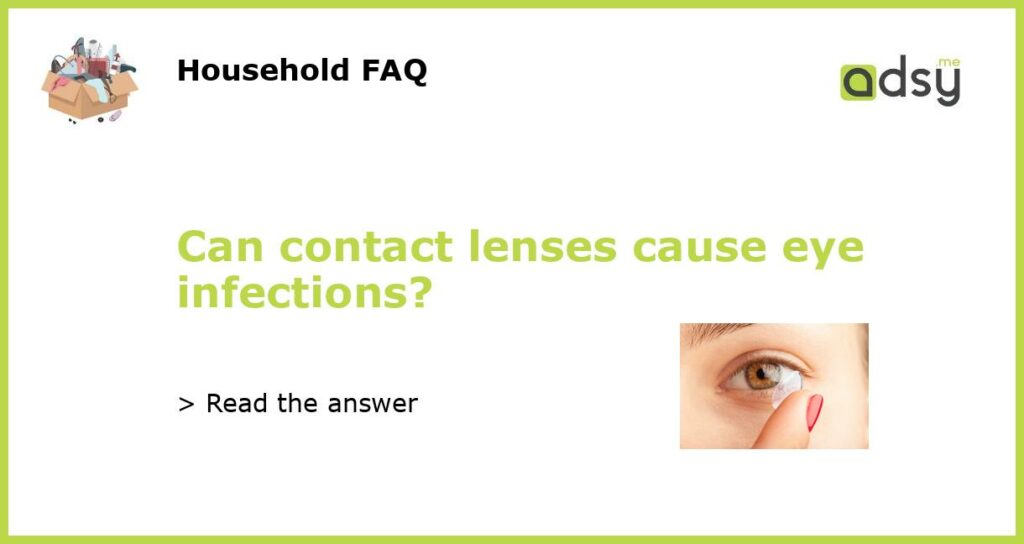What are contact lenses and how do they work?
Contact lenses are thin, curved lenses that are placed directly on the surface of the eye to correct vision. They work by changing the way light enters the eye and focuses on the retina. There are two main types of contact lenses: soft lenses and rigid gas permeable (RGP) lenses. Soft lenses are made of a soft, flexible plastic material that conforms to the shape of the eye, while RGP lenses are made of a rigid plastic material that maintains its shape on the eye.
Do contact lenses increase the risk of eye infections?
Wearing contact lenses does increase the risk of eye infections, as they can introduce bacteria and other microorganisms into the eye. Factors that can increase this risk include sleeping in contact lenses, not properly cleaning and disinfecting lenses, and wearing lenses for too long. Common types of eye infections that can result from contact lens wear include bacterial keratitis, fungal keratitis, and Acanthamoeba keratitis.
How can I reduce my risk of eye infections while wearing contact lenses?
To reduce your risk of eye infections while wearing contact lenses, it is important to follow proper cleaning and maintenance procedures. This includes washing your hands before inserting or removing lenses, cleaning lenses with the appropriate solution, and replacing lenses according to the recommended schedule. It is also important to avoid sleeping in contact lenses, as this can increase the risk of eye infections.
What are the symptoms of an eye infection related to contact lenses?
The symptoms of an eye infection related to contact lenses can vary depending on the type of infection, but typically include redness, pain, blurred vision, sensitivity to light, and discharge from the eye. If you experience any of these symptoms while wearing contact lenses, it is important to remove the lenses and contact your eye doctor immediately.
Contact lenses can cause eye infections if proper cleaning and maintenance procedures are not followed. However, with proper care, the risk of infection can be greatly reduced. It is important to follow up regularly with an eye doctor to ensure that your contact lenses are fitting properly and to address any concerns or issues you may be experiencing.






